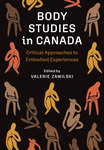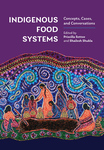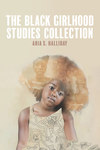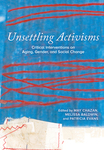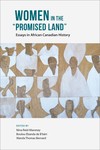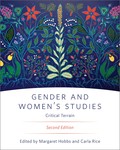We don’t actively support Internet Explorer
It appears that you are using Internet Explorer, which has been discontinued by Microsoft. Support has ended for versions older than 11, and as a result you may face security issues and other problems when using it.
We recommend upgrading to a newer browser such as Firefox, Google Chrome, or Edge for a much better experience across the web.
While this site may work with Explorer, we are not testing and verifying it, so you may run into some trouble or strange looking things.
Feminist Food Studies
Intersectional Perspectives
Edited by Barbara Parker, Jennifer Brady, Elaine Power, Susan Belyea
Overview
This expansive collection enriches the field of food studies with a feminist intersectional perspective, addressing the impacts that race, ethnicity, class, and nationality have on nutritional customs, habits, and perspectives. Throughout the text, international scholars explore three areas in feminist food studies: the socio-cultural, the corporeal, and the material. The textbook’s chapters intersect as they examine how food is linked to hegemony, identity, and tradition, while contributors offer diverse perspectives that stem from biology, museum studies, economics, popular culture, and history. This text’s engaging writing style and timely subject-matter encourage student discussions and forward-looking analyses on the advancement of food studies. With a unique multidisciplinary and global perspective, this vital resource is well suited to undergraduate students of food studies, nutrition, gender studies, sociology, and anthropology.
FEATURES
- includes pedagogical features such as discussion questions and a glossary
- ensures a feminist intersectional approach to food studies to enhance, enliven, and advance food studies in innovative, creative, and radical ways
Table of Contents
Foreword
Psyche Williams-Forson
Introduction: This Is What Feminist Food Studies Looks Like
Barbara Parker, Jennifer Brady, Elaine Power, and Susan Belyea
Chapter 1: Critiquing Hegemony, Creating Food, Crafting Justice: Cultivating an Activist Feminist Food Studies
Alice Julier
Chapter 2: “The Bees Wore Little Fuzzy Yellow Pants”: Feminist Intersections of Animal and Human Performativity in an Urban Community Garden
Teresa Lloro-Bidart
Chapter 3: How Veggie Vlogging Looks Like: Intersections of Gender, Race, and Class in Western Mainstream Veganism
Daniela Pirani and Ella Fegitz
Chapter 4: Is Veganism a Queer Food Practice?
Alissa Overend
Chapter 5: Because… “Obesity”: Reframing Blame in Food Studies
Jennifer Brady, Jacqui Gingras, and Katie LeBesco
Chapter 6: “Lose like a Man”: Gender and the Constraints of Self-Making in Weight Watchers Online
Emily Contois
Chapter 7: Feeding the Muslim South Asian Immigrant Family: A Feminist Analysis of Culinary Consumption
Farha Ternikar
Chapter 8: The Struggle Plate at the Intersection
Delores Phillips
Chapter 9: Low-Income Mothers and the Alternative Food Movement: An Intersectional Approach
Blake Martin, Mari Kate Mycek, Sinikka Elliott, and Sarah Bowen
Chapter 10:"Waiting to Be Fed": Reading Memories of Hunger in the Tsilhqot’ Land Claim Trial Transcripts and Tracey Lindberg's Birdie
Lauren McGuire-Wood
Chapter 11: We’re All Intersectional Now: Representational Intersectionality in Food Displays in Melbourne’s Immigration Museum
Elaine Swan, Deana Leahy, Emily Gray, Sian Supski, and Adele Wessell
Chapter 12: Fermentation and the Possibility of Reimagining Rationality
Maya Hey
Glossary
Contributor Biographies
Index



